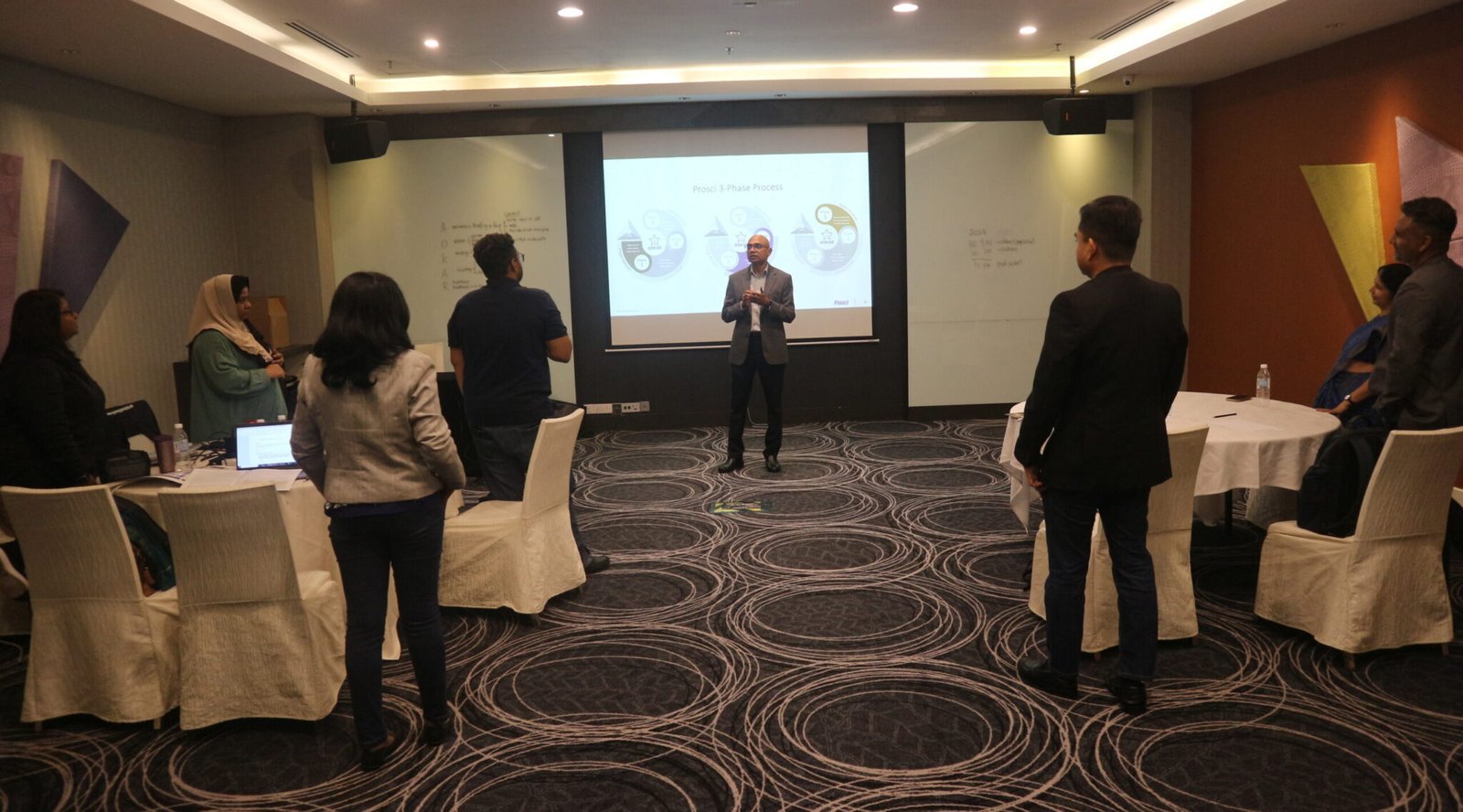Change Management
Driving Change success by preparing, equipping and supporting individuals to thrive through change.
Change Management is an enabling framework for managing the people side of change.
What is Change Management?
Change management as a discipline has evolved and matured over the past quarter of a century. Prosci research tells us that for changes to be successful, we must prepare, equip and support individuals moving through changes so that they successfully adopt the changes. Without adoption, changes will not be successful and we will not deliver the desired outcomes.

More than just communications

Change Management at the Project level
The application of the structured process and set of tools for leading the people side of change to achieve a desired outcome on our project.
Change Management at the organisational level
A leadership competency for enabling change within our organization and a strategic capability designed to increase our change capability and responsiveness.
Whatever change management might look like, the end goal is to help individuals make a change to help the organisation be more successful.





The Key Question:
What percentage of overall results and outcomes depends on adoption and usage of the change?
Why Change Management?
How you manage change impacts the things that matter most to your organization, including your employees, your customers and your profitability. Given that organizations are facing faster and more complex changes than ever before, the reasons for change management are only growing. But more than anything, change management prepares, equips and supports employees, so they can engage, adopt and use the change successfully.
Improving project outcomes
Project management, which focuses on the technical side of change, and change management, which focuses on the people side of change, both play critical roles in change success.
When using a best-practices approach to managing change such implementing a new accounting platform to streamline processes, how much can you improve the likelihood of meeting your project objectives? By a whopping 7X, according to Prosci’s research, where we’ve been surveying practitioners around the globe for more than 25 years:

The costs and risks of mismanaging change by ignoring the people side of change can be significant, impacting not just project outcomes, but timelines, budgets and more
Prosci’s research consistently shows that organizations with excellent change management achieve greater success with change.



With excellent change management, employees:
- Adopt changes faster, more completely and more proficiently
- Stay engaged in the organisation during disruptive change
- Understand why the change is happening
- Have the time and tools to get on board and feel heard and supported
Applying the principles of change management before, during and after a project can go a long way in helping you achieve the desired returns on your project investments.

Building change capability
You can increase your organisation’s capacity for change and better prepare for future change by building your overall change capability. We refer to this capability as enterprise change management:
Basically, enterprise change management is the systematic deployment of change management skills, tools and processes throughout an organisation. You can gain these capabilities through avenues such as formally training key roles in your organisation or getting hands-on support from outside experts to build those capabilities internally.
Hear from some of our customers on why their organisations are building change capability.
For a deeper dive into the what and why of change management, view our webinar about the Five Tenets of Change Management.
Ready to embark on a journey where change is not just necessary, but exhilarating?
Join the Change Management Class.





